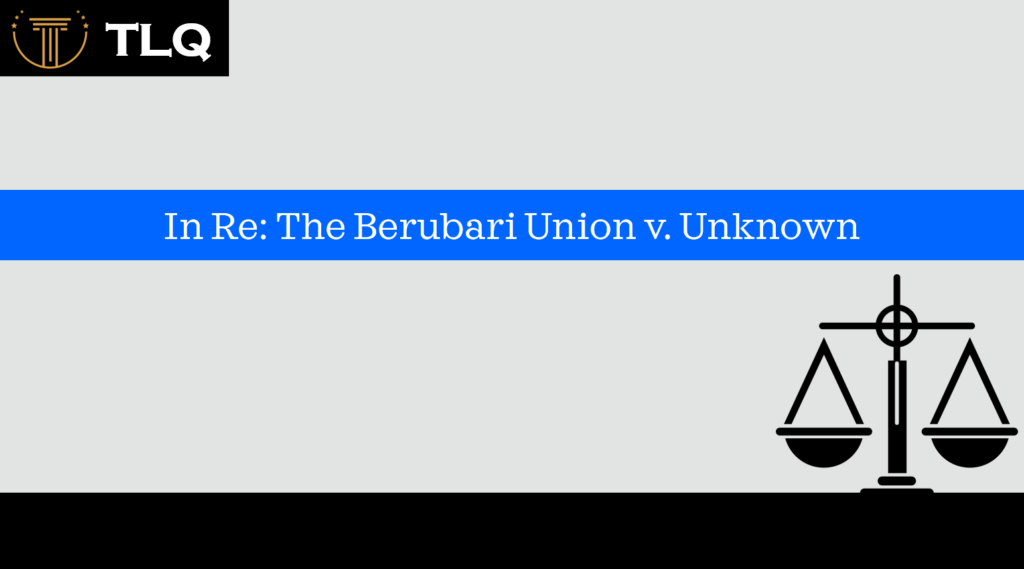Published on 05th July 2025
Authored By: A. Mahalakshmi
Sathyabama University
INTRODUCTION
The principle of dying declaration, enshrined under Section 32(1) of the Indian Evidence Act, 1872, is a significant exception to the general rule of excluding hearsay evidence. The underlying philosophy of this provision is based on the Latin maxim “nemo moriturus praesumitur mentiri”, meaning “a man will not meet his Maker with a lie in his mouth.” The law presumes that a person on the verge of death is unlikely to falsely implicate another, as the imminence of death is believed to remove the motive for fabrication. In the absence of direct witnesses, such declarations can play a crucial role in homicide cases. However, despite the theoretical rationale supporting dying declarations, their practical use has led to substantial judicial debate. Courts have often faced dilemmas when a dying declaration is the sole piece of evidence against the accused. Should it be accepted without corroboration? Should it carry the same weight as direct testimony? What procedural safeguards must accompany it? These critical questions have influenced the development of Indian criminal jurisprudence over the years. The landmark judgment in Khushal Rao v. State of Bombay (AIR 1958 SC 22) addressed these issues head-on. The Supreme Court’s ruling in this case not only affirmed the reliability of dying declarations but also laid down authoritative principles regarding their evidentiary value, admissibility, and sufficiency for conviction. It established the legal benchmark that continues to influence decisions in criminal cases involving dying declarations. The case serves as a judicial milestone that continues to resonate in Indian legal circles, harmonizing the pursuit of justice with the procedural integrity of criminal trials.
FACTS OF THE CASE:
In this case, the accused, Khushal Rao, was charged with the murder of a woman who succumbed to injuries allegedly inflicted by him. The incident occurred in circumstances where there were no eyewitnesses present. Before her death, the woman made a detailed statement accusing Khushal Rao of the assault. The statement was recorded by a magistrate in the presence of a doctor, who confirmed that the victim was in a fit mental and physical condition to make the declaration. The statement was coherent, consistent, and voluntarily made, without any signs of external influence. Relying primarily on this dying declaration, the Sessions Court convicted the accused under Section 302 of the Indian Penal Code. The Bombay High Court affirmed the conviction. On appeal to the Supreme Court, the accused contended that it was unsafe to rely solely on a dying declaration, particularly one that was not corroborated by other evidence. He also questioned the mental state of the deceased at the time of the declaration and challenged its admissibility.
ISSUES BEFORE THE COURT
- Can a conviction be based solely on a dying declaration without corroborative evidence?
- What standards must be applied in assessing the reliability of a dying declaration?
- Is there a legal requirement that a dying declaration must be corroborated before being acted upon?
- How important is the medical certification of the declarant’s mental fitness in determining the admissibility of a dying declaration?
ANALYSIS OF LEGAL PRINCIPLES
The Court approached the matter by interpreting Section 32(1) of the Indian Evidence Act. It held that the statute itself does not mandate corroboration as a condition precedent to the admissibility or sufficiency of a dying declaration. The Court stressed that the value of such a statement depends on its veracity, voluntariness, and the mental and physical state of the declarant. It clarified that the credibility of a dying declaration should be judged by the same standard as any other piece of evidence. The Court also rejected the argument that dying declarations are inherently weak forms of evidence. It emphasized that if the statement appears to have been made voluntarily and is consistent and truthful, it can be sufficient to sustain a conviction. While medical certification is desirable and lends credibility to the declaration, the absence of such certification is not fatal if the surrounding circumstances demonstrate that the declarant was in a fit state of mind.
BACKGROUND :
Prior to the Supreme Court’s decision in Khushal Rao, the Indian judiciary was sharply divided on the question of whether a dying declaration could, by itself, serve as sufficient basis for conviction. While some High Courts insisted upon corroboration of such statements—treating it as a rule of prudence if not of law—others were willing to act on a dying declaration alone, provided it appeared genuine, voluntary, and consistent. This judicial uncertainty led to inconsistencies in trial outcomes and appellate scrutiny, especially in murder cases where no eyewitness testimony existed. Lower courts hesitated to convict accused persons based solely on dying declarations, even when they appeared credible, for fear of reversal. This lack of uniformity posed challenges to both the prosecution and the defense, as there were no settled standards governing the use of dying declarations. The case of Khushal Rao v. State of Bombay emerged against this backdrop of legal ambiguity. The trial and conviction of the appellant were based entirely on a dying declaration made by the deceased, recorded under proper procedural safeguards. However, the accused questioned the reliability of the declaration and the legitimacy of convicting a person without corroborative evidence or cross-examination. When the matter reached the Supreme Court, it was not merely a routine appeal, but an opportunity for the apex court to resolve conflicting judicial views and bring clarity to the application of Section 32(1) of the Indian Evidence Act. Thus, this case presented the Supreme Court with a critical juncture to articulate a consistent and principled doctrine on dying declarations—balancing legal safeguards for the accused with the need to ensure that reliable evidence is not disregarded merely because the declarant is unavailable for cross-examination due to death.
JUDGMENT
In Khushal Rao v. State of Bombay, the Supreme Court dismissed the appeal and upheld the conviction of the appellant under Section 302 of the Indian Penal Code, affirming the decisions of the Sessions Court and the Bombay High Court. The Court held that the dying declaration made by the deceased was reliable, voluntary, and sufficiently detailed, and there was no legal bar to basing a conviction solely on such a statement. The Court emphasized that Section 32(1) of the Indian Evidence Act does not require corroboration of a dying declaration as a matter of law. If the declaration is found to be genuine, consistent, and made by a person in a fit mental and physical condition, it can be acted upon even in the absence of any supporting evidence.
THE BENCH ALSO LAID DOWN SEVERAL IMPORTANT OBSERVATIONS:
- A dying declaration is not inherently a weak piece of evidence and should not be dismissed merely because it is not corroborated.
- The test of reliability must be applied to dying declarations as to any other piece of evidence.
- Corroboration, while advisable in some cases as a rule of prudence, is not mandatory unless the declaration itself raises doubts.
- The presence of a medical opinion about the mental fitness of the declarant, while desirable, is not an absolute necessity if other circumstances prove the voluntariness and clarity of the statement.
The Supreme Court concluded that the dying declaration in this case was recorded by a magistrate, certified by a doctor regarding the mental state of the victim, and reflected a voluntary and coherent account of the incident. There were no inconsistencies or evidence of tutoring. Hence, the conviction based solely on the dying declaration was legally justified. This decision became a landmark authority affirming that a truthful and voluntary dying declaration, properly recorded, can serve as the sole basis for conviction under Indian law.
IMPACT OF THE JUDGMENT:
This decision became a cornerstone in the Indian law of evidence. It resolved the long-standing debate over the need for corroboration in dying declarations. By declaring that corroboration is not a rule of law, the Court enabled the judiciary to rely on such statements where the circumstances justify it. This ruling empowered trial courts to evaluate dying declarations on merit rather than dismissing them for lack of corroboration. The judgment also improved procedural discipline in recording dying declarations, encouraging the presence of a magistrate and a doctor, and ensuring that the declarant’s fitness is properly recorded. It has since been cited in a host of decisions and remains one of the most authoritative judgments in the domain of criminal evidence.
CONCLUSION
The judgment in Khushal Rao v. State of Bombay represents a definitive pronouncement on the evidentiary treatment of dying declarations in Indian criminal law. By declaring that a conviction can be sustained solely on the basis of a truthful and voluntary dying declaration, the Supreme Court brought much-needed clarity to an area that had previously been clouded by uncertainty and inconsistency. The decision established that corroboration, while desirable, is not an indispensable requirement if the declaration is found to be credible, coherent, and free from external influence. Importantly, the Court’s guidelines emphasized the quality of the evidence over its quantity, underscoring that the solemnity of a dying person’s words, when made in a conscious and unpressured state, can carry the weight of truth. The ruling also emphasized procedural safeguards such as ensuring the declarant’s mental fitness, the voluntary nature of the statement, and ideally, its recording by a magistrate. Beyond the immediate case, Khushal Rao has had a profound and lasting impact on the Indian criminal justice system. It has helped courts deliver justice in cases where dying declarations are the only available evidence, especially in domestic violence and custodial murder cases. It also placed a greater burden on judicial reasoning—requiring courts to evaluate such declarations with careful scrutiny but without unwarranted suspicion. In essence, this landmark ruling not only fortified the evidentiary status of dying declarations but also reaffirmed the core objective of criminal law: to administer justice based on truth, even in the absence of live testimony. It continues to serve as a guiding precedent in balancing the rights of the accused with the voice of the victim, preserved through their final words.
REFERENCE
- Indian Kanoon: https://indiankanoon.org/doc/1428689/
- Drishti Judiciary: https://www.drishtijudiciary.com/landmark-judgement/indian-evidence-act/kushal-rao-v-the-state-of-bombay-air-1958-sc-22
- LawCian: https://www.lawcian.com/post/khushal-rao-v-state-of-bombay-1958-scr-552-air-1958-sc-22
- Scribd: https://www.scribd.com/document/682175173/Khushal-Rao-v-State-of-Bombay-AIR-1958-SC-22


